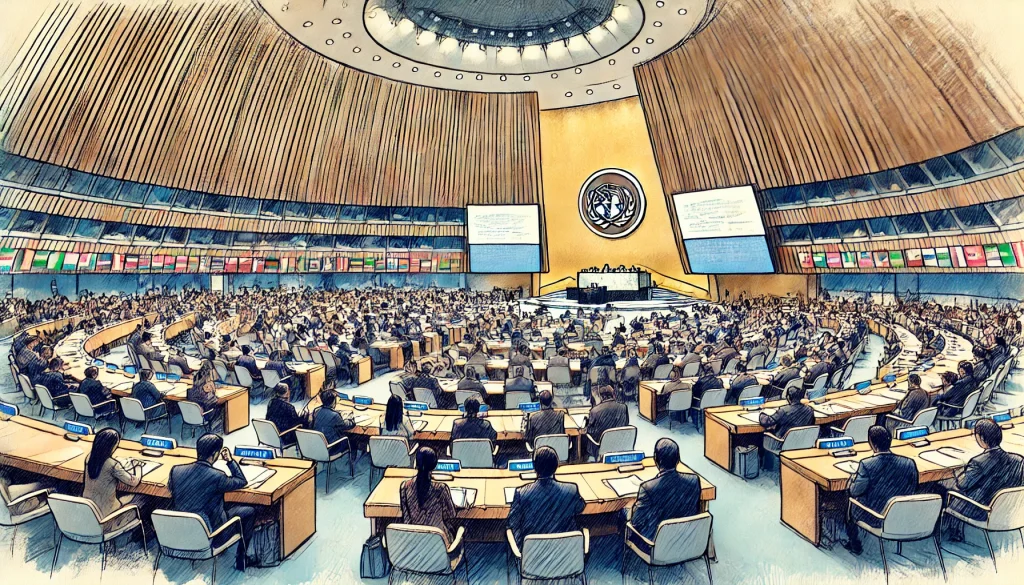World Teachers’ Day 2024: Celebrating Teacher Voices for a Better Future
World Teachers’ Day, observed annually on October 5th, is a global event dedicated to honoring educators for their vital role in shaping the future. The theme for 2024, “Valuing Teacher Voices: Towards a New Social Contract for Education,” calls for recognizing the importance of teachers in decision-making processes that affect education systems. This year’s celebration aims to amplify the voices of teachers, who are often left out of policy discussions, despite their frontline role in shaping students’ futures.
The Importance of World Teachers’ Day
World Teachers’ Day has been celebrated since 1994 to acknowledge the contributions of educators globally. It commemorates the adoption of the 1966 ILO/UNESCO Recommendation concerning the Status of Teachers, which sets standards for teacher rights, responsibilities, and working conditions. The day offers an opportunity to reflect on how teachers influence society and the support they need to perform their best.
Teachers are essential not only for imparting knowledge but for guiding, nurturing, and inspiring students. However, teachers are often underrepresented in policy discussions about education, despite their unique understanding of student needs. This year’s theme addresses this gap by emphasizing the need to integrate teacher perspectives into the decision-making process.
“Teachers’ voices are crucial in shaping educational policies that support both educators and students.”

World Teachers’ Day 2024: Key Events
The 2024 celebration will take place at UNESCO Headquarters in Paris. The day begins with an opening ceremony led by UNESCO’s Director-General and key messages from organizations like UNICEF, the International Labour Organization (ILO), and Education International. These organizations will highlight the importance of teachers’ involvement in shaping the future of education.
One of the key moments of the day will be the keynote address by Prof. Lis Lange, from the University of Stellenbosch in South Africa. She will speak on the theme of Valuing Teacher Voices, emphasizing the importance of teachers in developing educational systems. The day will also feature a panel where teachers from around the world share their insights on improving education policies and practices.
In addition, the UNESCO-Hamdan Prize for Teacher Development will be awarded. This prestigious prize recognizes teachers and initiatives that have made significant contributions to improving education through teacher development.

Addressing Teacher Shortages and Declining Conditions
A major focus of World Teachers’ Day 2024 will be addressing the global teacher shortage. According to UNESCO, by 2030, the world will need an additional 69 million teachers to meet the demand for universal education (UNESCO, 2023). This shortage is driven by a combination of factors, including poor working conditions, low salaries, and a lack of professional development opportunities.
In many countries, the situation has worsened due to the impact of the COVID-19 pandemic. Teachers have faced enormous challenges, from adapting to online learning to dealing with under-resourced schools. This has highlighted the importance of supporting teachers not only in their daily work but also in their long-term career development.
UNESCO’s Global Report on Teachers emphasizes that improving working conditions and increasing teacher salaries are critical to addressing this shortage and improving the quality of education worldwide (UNESCO, 2023).

How to Get Involved in World Teachers’ Day
World Teachers’ Day is a global celebration, but there are many ways to get involved locally. Whether you’re a student, parent, or simply someone who appreciates the value of education, you can make a difference. Here are some ways to participate:
- Thank Your Teachers: Reach out to your current or former teachers to express gratitude for their dedication and hard work.
- Support Educational Initiatives: Donate to organizations that aim to improve access to quality education, especially in underserved communities.
- Advocate for Teachers: Support policies that prioritize better pay, working conditions, and professional development for educators.
These actions, whether small or large, can contribute to a better future for education and ensure that teachers are recognized and supported.
Looking Ahead: A New Social Contract for Education
The theme of World Teachers’ Day 2024 points to the need for a new social contract for education, where teachers’ voices are valued, and their role is recognized as crucial to shaping the future. Listening to teachers, addressing their concerns, and ensuring their participation in policy decisions are essential steps toward creating a more equitable and effective education system.
As we celebrate this day, it’s important to remember that education is the foundation of a prosperous society, and teachers are the architects of that foundation. By giving teachers the respect and support they deserve, we can ensure a better future for all students.
References:
UNESCO. (2023). Global report on teachers: Addressing teacher shortages and improving working conditions. Retrieved from https://unesco.org
UNESCO. (2024). World Teachers’ Day 2024: Valuing teacher voices towards a new social contract for education. Retrieved from https://unesco.org








2 Comments